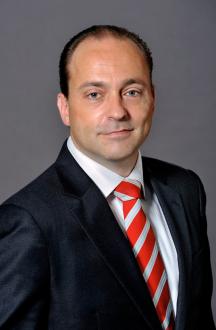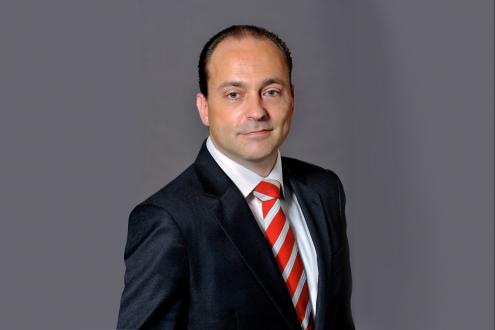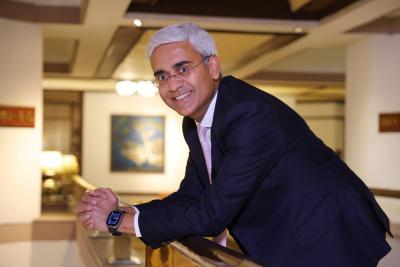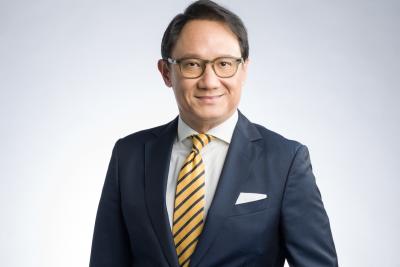Indosuez Wealth Management’s Investment Expert Arjan de Boer Surveys Global Investment Trends, Risks and Opportunities

Arjan de Boer of Indosuez Wealth Management
Mar 14, 2022
Arjan de Boer is Deputy Chief Executive for the Hong Kong Branch and Head of Markets, Investments and Structuring for Asia at Indosuez Wealth Management, a role he first took on back in early 2017. He is also a regular in our Hubbis pages and events over the years. We met again with him recently to hear his updates on key trends in Asia’s wealth management industry and how Indosuez is leveraging its strengths, as well as those of parent firm Credit Agricole and sister company Amundi, the leading European asset manager, to help private clients hone and refine their portfolios. We learned more of his positive views on ESG and private markets and of the firm’s view on how Asia’s private clients should be positioning, diversifying and balancing their portfolios for a rather different world ahead.
Arjan has been in his role heading markets and investments at Indosuez Wealth Management since early 2017, and during that time, has been an ardent proponent of the theme of sustainability in investments. He has built his business and teams around four pillars – investment solutions, structuring & financing, capital markets and asset management.
An increasingly prominent theme for him and his team has been the delivery of ESG-driven investment principles and associated education internally and externally. Another key segment he and colleagues have been focusing heavily on is around private markets, as clients migrate more of their portfolios to longer-term investments away from the volatility and vicissitudes of the mainstream public markets.
ESG & sustainability
“ESG is the flavour of many years ahead,” he states, “and certainly not only the flavour of the moment. We feel like pioneers to some extent, as we have been including ESG ratings in our client statements since 2015, and we have considerable in-house experience and expertise from which to base our conversations with clients. In Asia, interest is growing year on year.”
He explains the bank rates every single security, including individual stocks and bonds. He and colleagues are seeing rising demand for impact-related investments, such as green bonds, green structured products, blue bonds, gender bonds, and others.
Exploring the concepts
“Our clients are starting to see that the returns on these are pretty good, while some of the younger generations, in particular, have a variety of different reasons, some more noble or altruistic. Whatever the motivations, this whole sphere of investments around ESG, impact and sustainability will continue to expand.”
Nevertheless, he says he is realistic that although the growth is robust, it is from what is still a relatively small base.
“The reality is this is just the beginning out here, and Asia lags far behind Europe in this regard. In Europe, the MiFID II regulations are helping advance ESG, for example, demanding better substantiation of claimed ESG credentials. Asia will follow, but it is far behind in all aspects.”
Private equity – stock up
He shifts his focus to private equity, which Indosuez embarked on more than two decades ago in 2001. “We have more than USD 6 billion of private investments under management globally right now, and there is rapidly expanding interest every year,” he reports.
He notes that private assets have limited liquidity, and the investors need long-term perspectives and holding power; hence volatility, which is high in the public arena, is low with private assets because there is minimal panic buying or selling or fear of missing out.
Hold on and build for the future
The major issue is identifying and securing good opportunities, he elucidates. “We need quality assets with the right returns, to include in a variety of different solutions, perhaps direct co-investments, fund of funds, thematic private equity funds, and so forth,” he reports. “The only issue holding some clients back is the 7-year to 10-year investment horizon, and sometimes longer, maybe around 12 years. For Asian investors in particular that seems a very long time. Nevertheless, we are seeing more of them allocating to this segment, heading towards the 5% to 10% of the portfolios that we recommend. But again, growth is from a very small base.”
Expanding on the theme of the public market volatility and other headwinds such as rising inflation and rates, Arjan observes that the rotation from growth to value is ongoing, with the firm favouring energy and financials in particular, and positioning clients towards neutral on fixed-income, with higher percentages of cash and gold.
“For those keen on fixed income currently, we advise bonds that have rate resets, including CoCo [Contingent Convertible] bonds with variable rates and rate resets built-in,” he says. “As inflation rises or as interest rates go up, the yields of these products increase as well. And as I said, more private equity also acts as a good buffer in any portfolio.”
Spotting the trends
He adds that a key in the current environment is to keep close contact with clients, perhaps more so than usual. There are subtle nuances emerging, for example the increasingly visible divergence between South Asia and North Asia.
“The policy changes in China and the effects that had on Chinese stocks, as well as all the bad news around the real estate sector has left that market suffering volatility and uncertainty,” he reports. “We have also seen other bad news there, for example, only very recently a Chinese bio company that was put on the blacklist by the US, obviously with major implications.”
Nevertheless, he also adds that clients have often been bold enough to leverage this type of uncertainty in North Asia to their advantage. “Activity there has been quite high, actually, as clients have also tried to be opportunistic in terms of using the higher volatility to their advantage, especially with the use of structured products,” he reports.
The wide-angle view
Arjan shifts his comments to the bigger picture perspectives on the world of investments. Firstly, he sees 2022 as a year trending towards normalisation both in terms of growth cycle as well as monetary policies, with some 40% of the world’s central banks either having started raising rates or reducing quantitative easing or perhaps shifting to quantitative tightening. This year, the firm predicts that at least 70% of global central banks will take that direction, most notably the US Federal, where they expect at least four rate hikes this year.
The notable exception is China when it comes to monetary policy, as they are heading in the other direction, with considerable room to lower rates and raise stimulus. And given their zero COVID-19 policies, such a paradigm shift is very much needed, he comments.
Careful positioning
Looking globally again, he says the firm remains positive on risk assets, albeit advising clients to rotate more from growth into value. “Stocks with very high valuations in an environment like this are becoming a bit more dangerous, whereas we remain positive about PE ratios at or below historical levels for high-quality companies and with earnings momentum.”
Indosuez predicts decelerating global growth of around 4% in 2022, and although this is still above average, it is falling. Inflation will remain elevated, especially in the first half, and will trend towards normalisation in the second half of this year, he reports. The energy related inflation is somewhat uncertain and a risk, due to disruptions, but his economists think that will also normalise. Wage inflation, however, will remain at a somewhat elevated level throughout the year.
“The paradox is that if the normalisation of monetary policy goes too quick, then it could also pose risks for markets, so the central banks, especially the Fed with a balance sheet of USD8.8 trillion, must walk a very tight line to manage this,” he comments. “We need to all keep a really close eye on events.”
Slowly does it…
Looking at fixed income, Arjan explains the firm is largely neutral, with an exception being to favour BBB credit with low to medium maturities. “Other than that, whether emerging markets, or Europe or US paper, investment grade or high yield, we are firmly neutral,” he says.
Offering further insight on equities, he says they are advising clients to take advantage of rotation into value, specifically the energy and financials sectors he had mentioned earlier.
Equities remain broadly in favour
“Some of the major tech and very profitable tech companies are the types of growth stocks that Indosuez still believes in, particularly the global US names,” he adds. “In general, we are positive about equities due to ongoing global growth, and we favour Europe, where there are many value stocks and where we think earnings will be better than anticipated. We like emerging markets, and we think China is looking better for a rebound from the second half onwards. And we are positive on Japan, where EPS revisions also continue to be encouraging.”
The dollar and Swiss franc preferred
He turns his attention to currencies, noting that the US Dollar has now stabilised and appears to be still a safe haven, especially during times of geopolitical uncertainties, such as the Ukraine situation. “We think the dollar might even rally somewhat,” he reports. “Gold also remains a positive, due to inflation and volatility, and as I said, keep cash levels higher than normal and expand the allocation to private assets.”
He also zooms in on Europe, where they believe the Swiss National Bank could allow the currency to appreciate modestly in order to mitigate inflation. “We know when the franc becomes too expensive that the central bank always intervenes, but there is a little room before that happens,” he says.
The Euro had a very good start of the year, but the debt rally is over, and the ECB has made it clear that they are not particularly hawkish yet, meaning that Indosuez sees little or no more upside against the dollar. “We also think the UK pound is actually quite expensive at the moment, at its highest level against the Euro since Brexit and with all of the rate hikes and everything else already priced in.
Balancing the books
He closes the conversation by reminding us that Asian investors are facing a different world to the one they have bought into wholesale since the recovery phase after the global financial crisis. “The portfolios need to be carefully structured today, with asset, sectors, segment and geographical diversification and balance,” he concluded.

Head of Markets, Investments & Structuring, Asia at Indosuez Wealth Management
More from Arjan de Boer, Indosuez Wealth Management
Latest Articles






